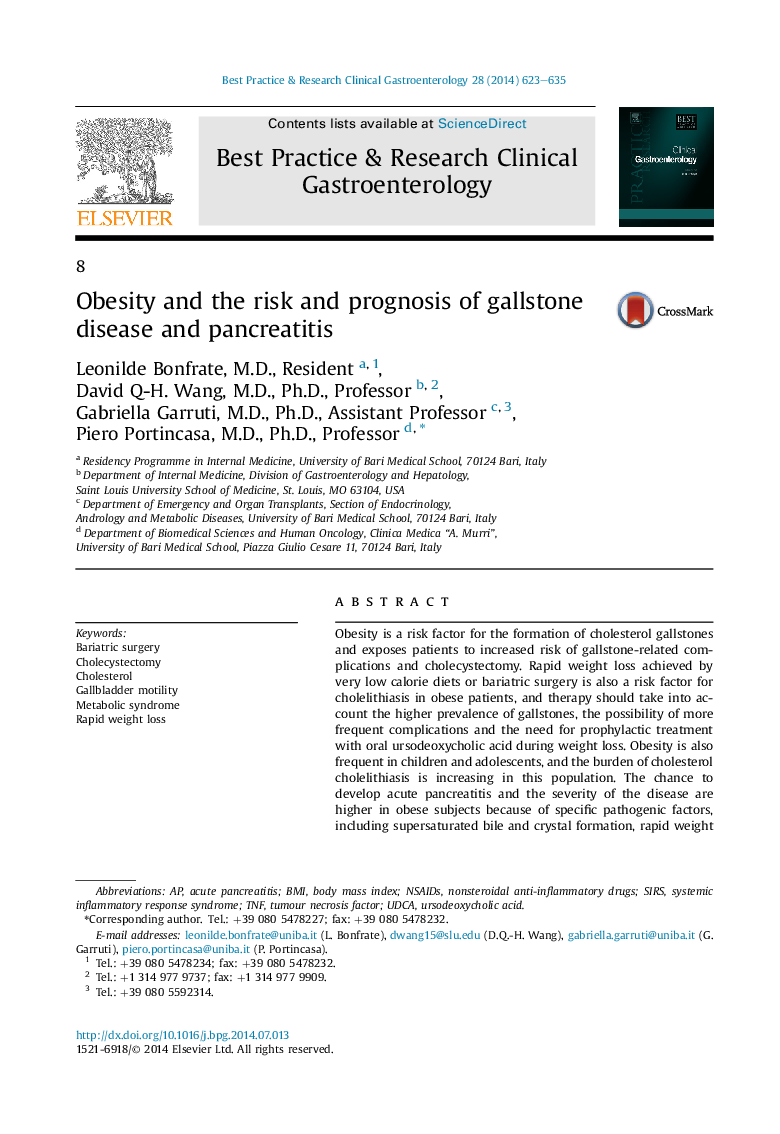| Article ID | Journal | Published Year | Pages | File Type |
|---|---|---|---|---|
| 3254021 | Best Practice & Research Clinical Gastroenterology | 2014 | 13 Pages |
Obesity is a risk factor for the formation of cholesterol gallstones and exposes patients to increased risk of gallstone-related complications and cholecystectomy. Rapid weight loss achieved by very low calorie diets or bariatric surgery is also a risk factor for cholelithiasis in obese patients, and therapy should take into account the higher prevalence of gallstones, the possibility of more frequent complications and the need for prophylactic treatment with oral ursodeoxycholic acid during weight loss. Obesity is also frequent in children and adolescents, and the burden of cholesterol cholelithiasis is increasing in this population. The chance to develop acute pancreatitis and the severity of the disease are higher in obese subjects because of specific pathogenic factors, including supersaturated bile and crystal formation, rapid weight loss, and visceral obesity. All health policies aimed at reducing the incidence of obesity worldwide will decrease the incidence of gallstones and gallstone-related complications. The pathophysiological scenarios and the therapeutic implications for obesity, gallstone disease, and pancreatitis are discussed.
